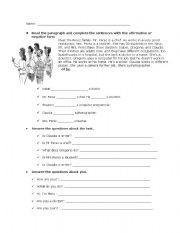
|
Reading for very basic students
SS read a short text and complete the sentences. Then they answer questions about the text and about them. This worksheet is very easy for lower basic students. Feel free to comment or suggest.
Level: elementary
Age: 7-17
Type: worksheet
Downloads: 11
|
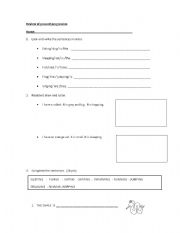
|
Present Progressive/continuous
An easy review of present progressive for kids. Hope you like it. Feel free to comment.
Level: elementary
Age: 6-14
Type: worksheet
Downloads: 1
|
|

PARTS OF THE BODY
SS are presented body parts vocabulary in an easy and helpful way. After they remember the vocabulary, they look at the picture and complete.
Level: elementary
Age: 5-17
Downloads: 16
|
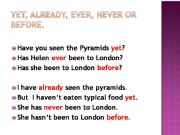
yet, already, never, before
A fun way to teach yet, already, never, before and to create a conversation about what activities a tourist can do in a country (Peru)
Level: intermediate
Age: 3-100
Downloads: 32
|

Controversial topics
ss are able to discuss controversial topic. They have new vocabulary and expressions they can use. conditionals are also reviewed.
Level: advanced
Age: 10-100
Downloads: 38
|

phrasal verbs
important issues to be discussed in class plus used of phrasal verbs
Level: intermediate
Age: 3-100
Downloads: 23
|
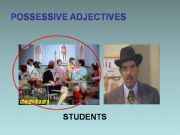
Possessive adjectives
A funny way to learn possessive adjectives is with cartoons. Students can understand better and also have fun. Hope you like it. :)
Level: elementary
Age: 6-17
Downloads: 25
|
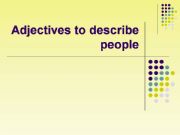
Describing people
SS look at the pictures and learn new vocabulary, then in groups/ pairs they look at the photos and describe. Hope you like it, feel free to comment.
Level: elementary
Age: 5-17
Downloads: 26
|
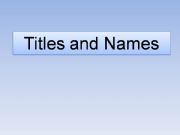
Titles and Names
SS can understand the use of Mr, Mrs, Mss and Miss.
Level: elementary
Age: 7-17
Downloads: 18
|

would rather
an easy way to use would rather in question form and in sentences.
Level: elementary
Age: 8-17
Downloads: 19
|

Cooking vocabulary
SS can understand different cooking vocabulary by looking at the slides. Hope you like it :) feel free to comment.
Level: elementary
Age: 5-17
Downloads: 280
|
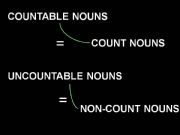
Countable and uncountable
Students understand the difference between countable and uncountable. also, they practice how many, how much, are there any, is there any. I hope you find it useful.
Level: elementary
Age: 3-17
Downloads: 51
|
|
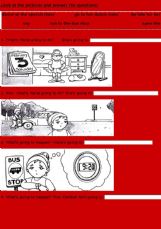
predicting a situation (going to)
Students look at the pictures and predict what is going to happen. Then, they complete the sentences with the words from the box.
I Hope you like my worksheet (it�s my first online worksheet so it took me a lot of time :D) Feel free to comment. thanks
Level: elementary
Age: 6-100
|
|